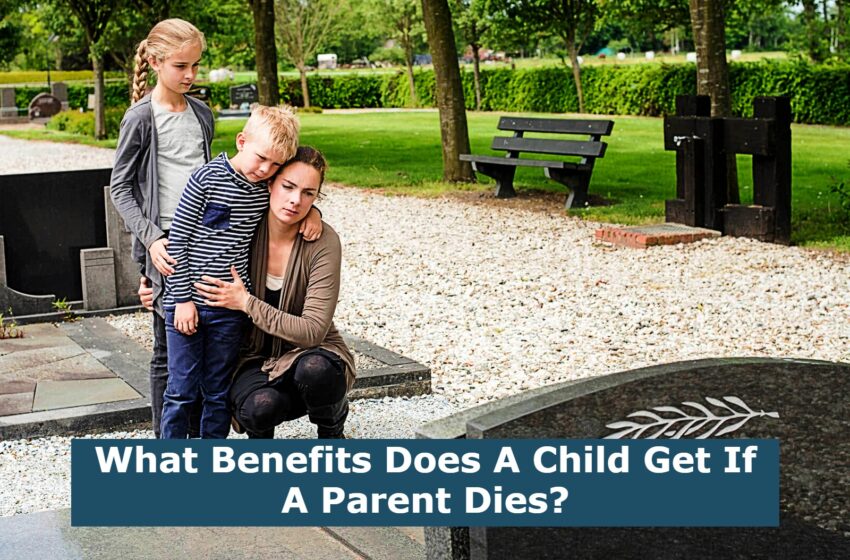
What Benefits Does A Child Get If A Parent Dies?
If you’re wondering what benefits you and your child can receive when your parent passes away, there are many different options available. Some are available through the government, while others are private. For example, you may be eligible for DIC or SSI.
SSI
Social Security provides benefits for children and adults who lose a parent. In most cases, the only person who can receive a parent’s Social Security benefit is the surviving spouse, but a disabled adult child can receive a share of their parent’s benefits.
The amount of the Social Security benefit depends on how much your parent earned and how long you were able to work. The benefits will be reduced if your parent received other income. If you have any doubts, it is best to seek help from your local social security office.
Survivors of a deceased parent will often qualify for a lump sum payment. This is a one-time deposit of $255. It is usually given to the surviving spouse or a child. You can also request that the SSA directly deposit the payment into a bank account.
In the case of a child, the largest payment you can expect is 75 percent of the deceased parent’s basic Social Security benefit. If the parent was disabled, the benefits will be based on their contributions.
DIC
When a parent dies, a child may receive Social Security benefits if one or both parents were covered by the program. To qualify, a child must be at least two years old. There are also certain eligibility requirements for adult children and disabled people. Survivors of veterans and their eligible children may also collect DIC and death pension benefits.
Depending on the age of the child, they may be able to receive a partial or full amount of the deceased parent’s benefit. This benefit is based on a number of factors, including the income of the deceased parent and the family income of the surviving spouse. In addition, the child’s disability status and whether or not they are attending school are also taken into account.
In order to apply for a DIC, a surviving spouse or children must complete VA Form 21-534. This form is available from the local County Veterans Service Office. If the surviving spouse has a dependent child, the child must also submit school transcripts and birth certificates.
Adult children
If a parent dies, adult children may receive disability benefits. These benefits are paid through the Social Security Administration (SSA). The type of disability benefit a child can receive depends on the child’s age and financial resources.
Adult children with disabilities can also receive survivor’s benefits from SS. These are generally only for the life of the adult child. However, they can be extended until the child marries.
A disabled adult child will be eligible for Medicare after two years of SSDI benefits. During this time, the adult child must meet strict asset and income limits. He or she must not be earning over the SGA, or the Social Security General Allowances.
An adult child can receive disability benefits based on a parent’s work history. This type of benefit is called the Disabled Adult Child (DAC) program.
The SSDI program can pay adult children up to 50 percent of the deceased parent’s full PIA. Benefits are paid every third Wednesday.
Children who have lost both parents
Children who have lost both parents are often able to qualify for Social Security benefits. These funds can help cover the expenses of rent, food, school supplies, and other needs. However, they are taxable.
The child’s earnings can also affect the amount of benefit that he or she receives. For example, if the deceased parent was working, the benefit will be based on the parent’s earnings.
In addition to the loss of a parent, children who have experienced parental death may be at increased risk for substance abuse, violence, and other negative behaviors. They may also experience shorter schooling and a decrease in self-esteem.
Families with young children reported a decrease in hardship when they first received pandemic-related cash assistance in early 2021. Many of these families had experienced the emergence of the COVID-19 pandemic.
During this period, a study from the Lancet revealed that a staggering 1.5 million children were affected by the loss of a secondary caregiver during the pandemic. This study outlined the stark disparities in caregiver deaths by race and ethnicity.


